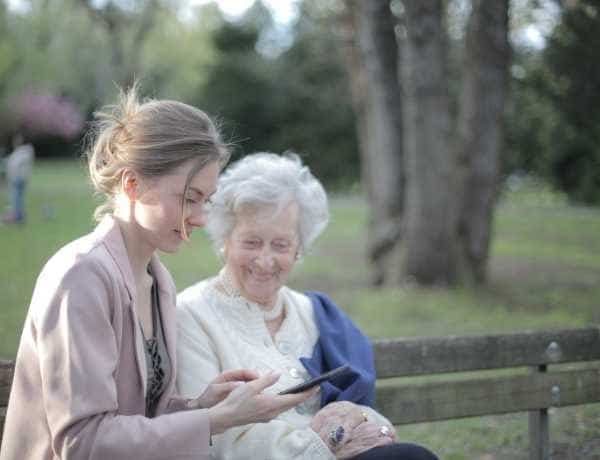
As we age, it's natural for our physical and cognitive abilities to decline, leaving us vulnerable to financial exploitation, physical abuse, and neglect. Guardianship and elderly care are essential aspects of protecting our elderly loved ones and ensuring they receive the support they need.

Guardianship is a legal process that grants an individual the authority to make decisions on behalf of another person deemed incapacitated or unable to make their own decisions. When it comes to elderly care, guardianship can be necessary if a senior is no longer able to make decisions about their healthcare, finances, and living arrangements.
Here are some steps you can take to ensure your loved ones are protected through guardianship and elderly care:
The first step in ensuring your loved one is protected is to talk to them about their wishes and preferences. Discuss their:
to ensure they have a plan in place for when they can no longer make decisions for themselves.
Evaluate your loved one's needs and determine what kind of care they require. Do they need assistance with daily living activities, such as bathing, dressing, and grooming? Do they require medical care, such as medication management and regular doctor visits?
Finding the right caregiver is crucial in ensuring your loved one's safety and well-being. You can hire a professional caregiver, use an agency, or find a family member or friend to provide care. Whatever option you choose, ensure the caregiver has the qualifications, experience, and references.
If your loved one can no longer make decisions for themselves, guardianship may be necessary to ensure their protection. Talk to a lawyer specializing in elder law to determine if guardianship is best for your loved one.
Even if you hire a caregiver or establish guardianship, staying involved in your loved one's care is essential. Regular visits, phone calls, and check-ins can help you monitor their well-being and ensure they receive the necessary care.
Legal guardianship of an aging parent can be necessary for several reasons. As we age, our physical and cognitive abilities may decline, making it difficult to make decisions and care for ourselves. Here are some reasons why legal guardianship of an aging parent may be important:
Legal guardianship can ensure that aging parent receives the care and support they need to remain safe and healthy. This can include decisions related to healthcare, living arrangements, and financial management.
As we age, we may become more vulnerable to financial exploitation, such as financial abuse. A legal guardian can help protect an aging parent from financial abuse by managing their finances and ensuring they are not exploited.
When aging parents can no longer decide for themselves, legal guardianship can provide the legal authority to decide. This can include decisions related to healthcare, living arrangements, and finances.
Legal guardianship can ensure that an aging parent's wishes are respected, even if they cannot decide for themselves. This can include decisions related to end-of-life care, burial arrangements, and other essential matters.
Legal guardianship can help prevent conflicts between family members who may have different opinions on caring for an aging parent. By appointing a legal guardian, everyone can clearly understand who is responsible for making decisions and ensuring the parent's well-being.
Taking care of an aging parent can be a difficult and emotional journey. When your parent can no longer make decisions on their own, you may need to consider getting guardianship over them. Guardianship will give you the legal authority to make decisions on behalf of your parent. Here are the steps you can take to get guardianship over an aging parent:
Guardianship laws vary by state, so it’s important to understand the laws in your state. You can research the laws online or speak with an attorney specializing in elder law. Knowing the laws will help you understand the process and requirements for guardianship in your state.
To start getting guardianship, you must file a petition with the court in your county. The petition will include information about your parent’s current situation, why you believe they need a guardian, and why you are the best person to serve as their guardian. You must also provide documentation, such as medical records and financial statements, to support your petition.
After you file the petition, the court will schedule a hearing. You must present your case at the hearing and provide evidence to support your petition. You may also need to answer questions from the judge or other parties involved in the case. It’s essential to be prepared and organized for the hearing.
In some states, the court may appoint a guardian ad litem to represent your parent’s interests during guardianship. The guardian ad litem will investigate your parent’s situation and provide a report to the court. This report will help the judge decide whether guardianship is necessary and who should serve as the guardian.
If the judge approves your petition for guardianship, you must follow the court’s instructions to become the legal guardian. This may include completing training, submitting reports to the court, and following specific guidelines for making decisions on behalf of your parent.
Getting guardianship over an aging parent can be complex and emotional, but ensuring that your parent is taken care of and their interests are protected is crucial.
In conclusion, guardianship and elderly care are crucial in protecting our elderly loved ones. We can ensure they receive the support and protection they need by taking the necessary steps to evaluate their needs, find the right caregiver, and consider guardianship when necessary.
Our expert partner attorneys offer free consultations for your claim.